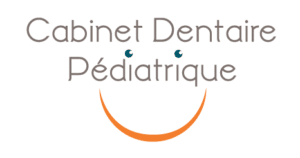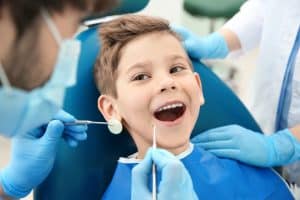The appearance of early caries in young children, known as bottle syndrome or baby bottle tooth decayThis can also occur in breastfed babies, although this is more rare.
Breastfeeding is a completely different process than bottle feeding, because in order for the milk to flow, the child has to make a sucking movement. This movement limits the risk of cavities. The sucking movement favors above all a harmonious growth of the jaws. Cavities in breastfed babies are not more frequent.
Does breast milk promote cavities in breastfed babies?
Baby bottle syndrome mainly concerns children who suckle for long hours, or even all night, on a bottle of milk or sweetened liquids. Some dentists extrapolate this disease to breastfed babies. However, there are many differences between bottle feeding and breastfeeding.
First, breast milk does not have the same composition as artificial milks. Artificial milks tend to lower the pH of the mouth and therefore favor the development of bacteria. Breast milk does not lower the pH.
In addition, it contains antibacterial agents, which limit the development of bacteria responsible for cavities in young children.
During breastfeeding, in order for the milk to flow, the child must make a strong sucking movement, followed by a swallowing movement in order for the milk to come out again.
On the contrary, when taking a bottle, the liquid can flow by itself in the mouth, even if the child does not suck or swallow. The sweet liquid can therefore remain on the teeth for several hours. During breastfeeding, the baby sucks the breast far into his mouth, the milk flows almost directly into his throat, so it has little contact with the teeth.
Several studies have shown that prolonged breastfeeding does not increase the risk of cavities in young children. However, it is important to limit the intake of sugary foods and to establish good oral health habits.
Why can cavities occur in breastfed babies?
Even though breastfed babies are less likely to get bottle syndrome, they can still get cavities.
The appearance of early caries can be due to different factors:
- A defect in the enamel, resulting in more fragile teeth,
- A hereditary or congenital problem,
- A premature birth,
- Too much intake of sugary foods,
- Poor oral hygiene,
- Night feeding.
In addition, parents can also transmit caries bacteria to their children when they kiss, exchange cutlery or "clean" a pacifier in their mouth.
In fact, studies show a correlation between the appearance of early cavities in children and the presence of many untreated cavities in parents. It is therefore important to take care of the teeth of the whole family.
Preventing cavities in breastfed babies
Although bottle syndrome and early tooth decay are not more common in breastfed babies, it is important to take good care of your child's teeth to avoid the risk of caries damage.
From simple solutions can be implemented to prevent the appearance of baby bottle cavities in your child.
To prevent milk sugar from staying on your baby's teeth for too long, don't hesitate to offer them a glass of water after each feeding, or to clean their gums with a wet compress. This helps to remove some of the sugar and acids, and encourages saliva to play its protective role.
Spacing out feedings and sugary foods can also help prevent cavities.
From a young age, you can brush your child's teeth with an appropriate toothbrush. It is also important to use a fluoride toothpaste to further protect baby teeth.
As soon as yellow stains appear on one of the teeth, consult a dentist quickly so that the baby tooth can be treated and cured.
See a child's dentist at least once a year. This will ensure that teeth are healthy and your child will get used to being examined without fear.


